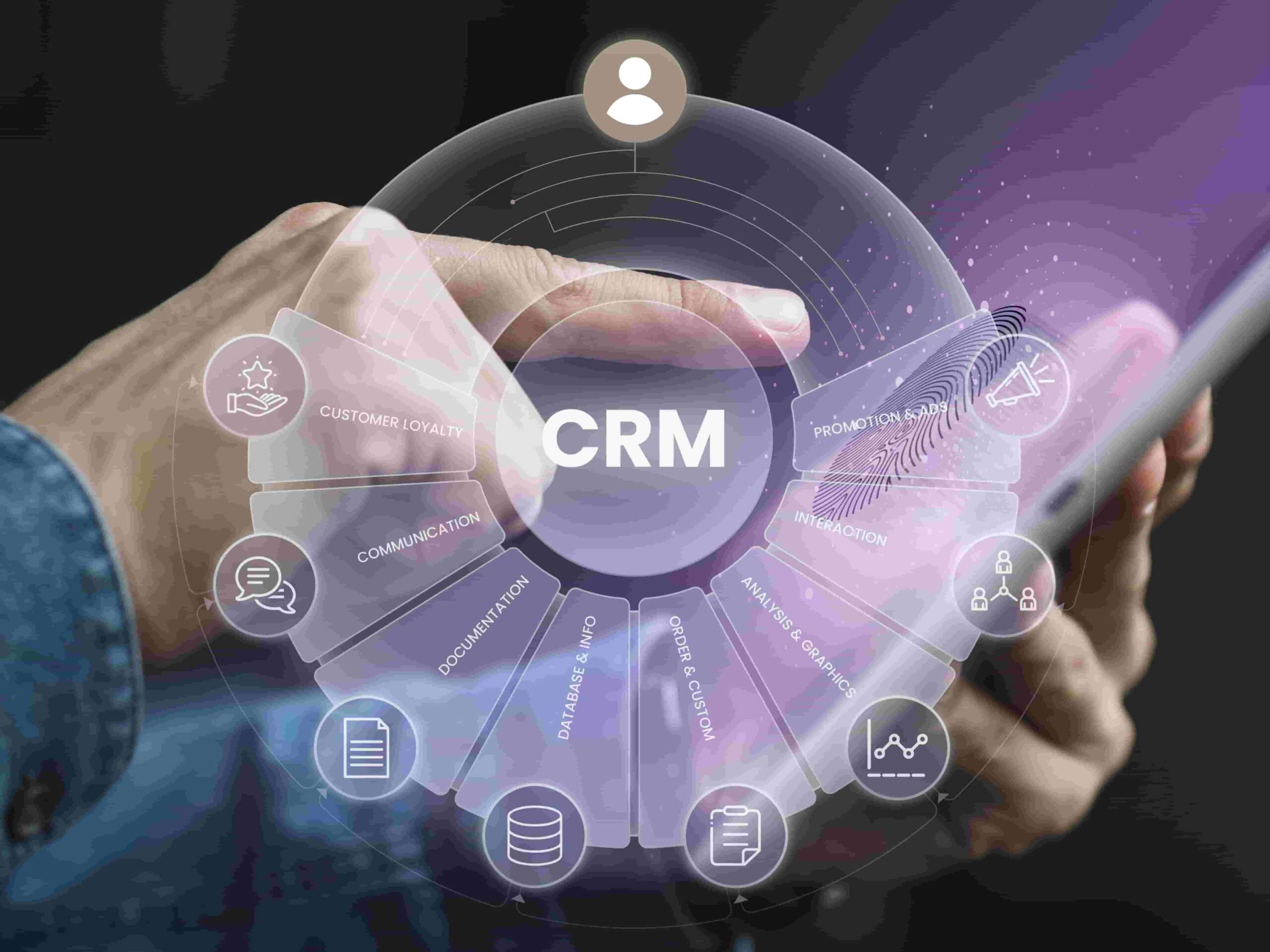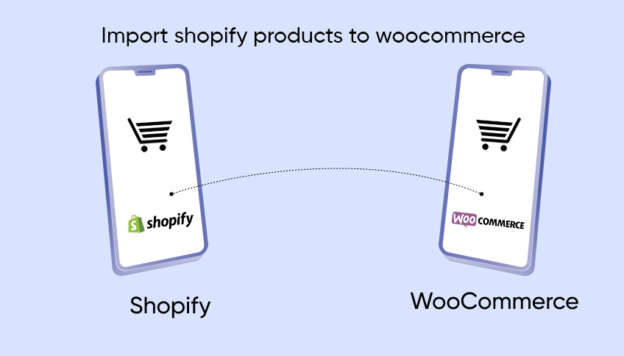There are various benefits of considering Shopify CRM Integration. The write-up provides insightful details on the same.
Everything to Know About Shopify CRM Integration
Shopify is a popular eCommerce platform offering a variety of tools for creating and managing online stores. However, as your Shopify store grows, the requirement for Shopify development services increases as well. This expansion can be anything right from expanding customer base, to keeping track of interactions, orders, and sales data can become challenging. This is where Customer Relationship Management (CRM) systems come in.
A CRM or customer relationship management system provides a centralized location to manage data. This data can range anywhere from customer relationships and sales data to targeted numbers streamlining the sales process and improving customer engagement.
The blog post will talk about exploring the benefits of integrating a CRM system with Shopify. It will also include the features and capabilities of Shopify CRM systems. We will also be summarizing tips for selecting and seamlessly integrating the right CRM system with your Shopify store.
Keep on reading to know more!
Shopify CRM Integration Overview
Integrating CRM with Shopify is crucial for businesses for a variety of reasons. The reasons may include seeking to effectively manage customer relationships and streamline sales processes. As CRM systems offer tools for managing customer interactions, sales data, and marketing campaigns, they are exceptional for managing businesses.
By integrating CRM, businesses accommodate a centralized hub for storing customer data. This also includes monitoring sales activity, and automating workflows between your Shopify store and CRM system.
Why Considering CRM Systems is a Good Business Practice?
As a business expands, manually tracking customer interactions, sales data, and preferences becomes increasingly difficult. CRM systems offer a centralized platform to store all customer-related information, such as contact details, purchase history, and preferences. This comprehensive data repository enables businesses to gain deeper insights into their customers. This allows businesses to deliver a more personalized and effective customer experience.
Following are more reasons for businesses to consider CRM systems.
Streamline Process
A CRM system streamlines the sales process by automating repetitive tasks like sending follow-up emails, creating quotes, and generating invoices. This automation reduces the time and effort needed for these tasks. Businesses thus can use this time to concentrate on more critical activities.
To Improve Customer Experience
CRM systems allow businesses to deliver a personalized experience by storing customer preferences and purchase history. This valuable information helps businesses gain a deeper understanding of their customers’ needs and preferences, enabling them to tailor their interactions and offerings for a more personalized experience.
Helps Increase Customer Retention
CRM systems enhance customer retention by offering businesses insights into customer behavior. This allows them to identify potential churn risks. This helps businesses take proactive measures to retain customers.
Effective Lead Management
A CRM system enables businesses to manage leads effectively. This is possible for businesses with the help of continuous tracking. By tracking the progress of each lead and identifying potential conversion, businesses get the desired data. This helps businesses prioritize their efforts and focus on the most promising leads. This increases the chances of businesses for successful conversions.
Improving Customer Services
CRM systems empower businesses to deliver superior customer service. Businesses can do it by storing communication history, preferences, and feedback. This comprehensive data allows businesses to respond to inquiries more efficiently. Ultimately, it becomes easier to resolve issues promptly. This also aids in providing a personalized experience that meets customer expectations.
Boosting Collaboration
CRM or customer management systems centralize customer data and provide access to all relevant teams. This includes access to sales, marketing, and customer support data. This centralized access fosters collaboration among teams. This further ensures the team is aligned and can deliver a consistent and seamless experience to customers.
Shopify CRM Features:
Every Shopify development company can easily promise you the following features when hiring their services.
- Contact Management: Integrating Shopify with a CRM system offers businesses a centralized platform to store all customer-related information, including contact details, purchase history, and preferences.
- Order Management: Shopify CRM integration streamlines the management of sales data, providing tools to efficiently handle orders, invoices, and shipping information.
- Marketing Automation: This integration enables businesses to automate their marketing efforts with tools for creating targeted email campaigns, social media posts, and other marketing materials.
- Reporting and Analytics: Shopify CRM integration delivers valuable insights into sales data, allowing businesses to make data-driven decisions and identify growth opportunities.
- Integration with Third-party Tools: The integration offers flexibility by allowing businesses to connect with third-party tools like email marketing software, social media platforms, and accounting software, enhancing overall operational efficiency.
Considerations to Look Forward When Selecting Shopify CRM
There are various considerations that must be kept into the mind when you need to consider a Shopify CRM. These considerations help to choose a system that is apt for the requirements of the business in particular. Here are the factors to consider.
- Pricing: When selecting a CRM system for your Shopify store, considering the pricing is critical. Ensure that it fits within your budget. Also make sure it provides the necessary features and capabilities.
- Features and Capabilities: Evaluate the CRM system’s features align with your business needs. There are various key features to consider. These features include contact management, order management, marketing automation, and reporting and analytics.
- Ease of Use: Another important consideration is the ease of use. The CRM system should be user-friendly. Its attributes should be easy to navigate. A system that is simple to use will save you time and effort in the long run.
- Scalability: Always consider the scalability of the CRM system. It helps ensure that the system can accommodate your business growth. It should handle increased customer interactions and sales data without compromising performance.
- Integration with Shopify: The CRM system must integrate seamlessly with Shopify. Additionally, it must ensure providing a centralized platform for managing customer interactions and sales data for improved collaboration.
Best CRMs for Shopify Business
There are various CRM systems that you can choose from if you are managing a Shopify business. From an enriching list of CRM options, here are some of the best one explained:
Zoho CRM
Zoho CRM is a cloud-based solution that helps businesses manage customer interactions and sales data more efficiently. It offers a range of features, including contact management, order management, marketing automation, and robust reporting and analytics. With pricing plans to fit most budgets, Zoho CRM integrates seamlessly with Shopify, making it an ideal choice for businesses seeking to enhance their customer relationship management.
Salesforce CRM
Salesforce is a leading cloud-based CRM system. It empowers businesses to manage customer interactions and sales data effectively. The CRM offers a comprehensive suite of features, including contact management, order management and more. The system has extended attributes like marketing automation, and robust reporting and analytics. While Salesforce is a more expensive option, it provides advanced features and capabilities. These features are excellent to cater to the needs of larger businesses. These features thus make this option a powerful choice for those seeking a scalable CRM solution.
Konnective
Konnektive is a dynamic cloud-based CRM system. It is designed to streamline customer interactions and sales data management for businesses. The system has comprehensive suite of features including contact management, order processing and more. It also includes marketing automation, and detailed reporting and analytics. Konnektive empowers businesses of all sizes to enhance their customer relationship management efforts. With flexible pricing plans that accommodate various budgets, Konnektive seamlessly integrates with Shopify. This makes it a valuable asset for businesses looking to optimize their eCommerce operations.
Capsule
Capsule is a versatile cloud-based CRM system. The system is designed to help businesses manage customer interactions and sales data with ease. The CRM system offers a range of features including contact management, order tracking, marketing automation, and insightful reporting and analytics. Capsule empowers businesses to streamline their operations and enhance customer relationships. With pricing plans tailored to suit various budgets, Capsule seamlessly integrates with Shopify. This integration makes this CRM a valuable tool for businesses looking to optimize their eCommerce efforts.
In Conclusion
Integrating a CRM system with Shopify can revolutionize the way businesses operate. This requires assistance of companies providing Shopify maintenance services. This ensures smooth maintenance of given services. CRM, on the other hand, can help manage customer relationships and sales processes of businesses in an ideal way. By centralizing customer data and providing access to key teams, businesses can work collaboratively to provide a consistent and personalized experience to customers. The benefits of CRM integration extend beyond improved customer service. The apt benefits also include streamlining 0sales processes, automating marketing efforts, and gaining valuable insights from reporting and analytics.
However, selecting the right CRM is a different game altogether. When selecting a CRM system for Shopify integration, it’s crucial to consider various factors. These factors include pricing, features, ease of use, scalability, and integration capabilities.
Systems like Zoho CRM, Salesforce, Konnektive, and Capsule offer unique features. There pricing plans easily suit various business needs. Regardless of the CRM system chosen, seamless integration with Shopify is key to ensuring a unified platform for managing customer interactions and sales data.
As businesses continue to expand their online presence, Shopify CRM integration remains a vital tool for driving growth. The platform is just exceptional for enhancing customer engagement, and optimizing operations. By harnessing the power of CRM technology and services from Shopify development company, businesses can stay ahead in today’s competitive market. CRM system can also help in delivering exceptional experiences that keep customers coming back.












